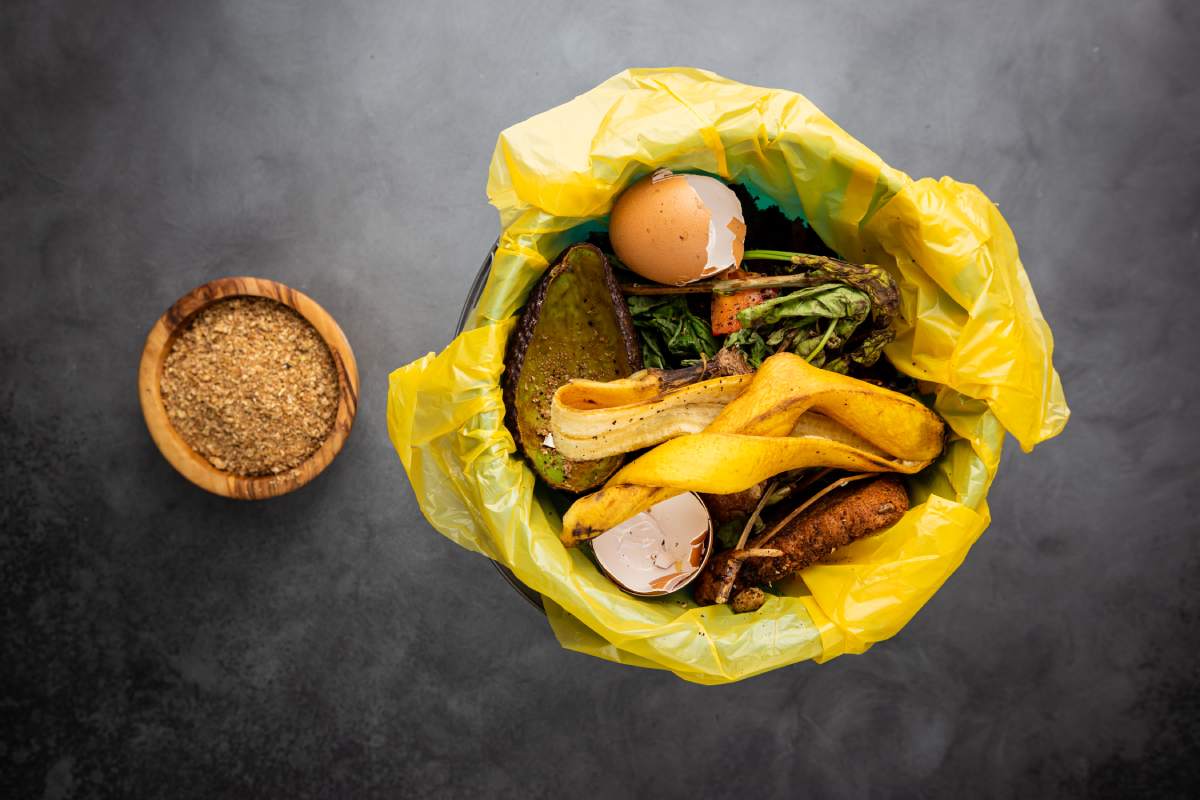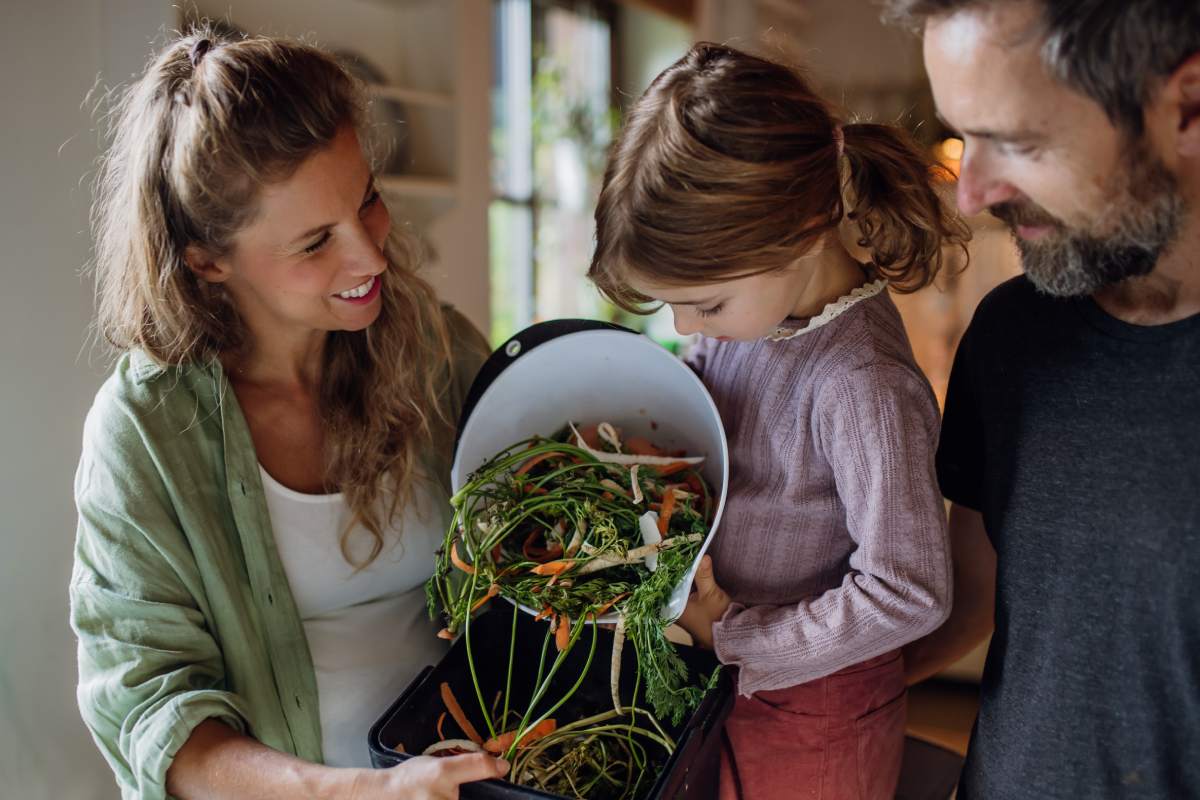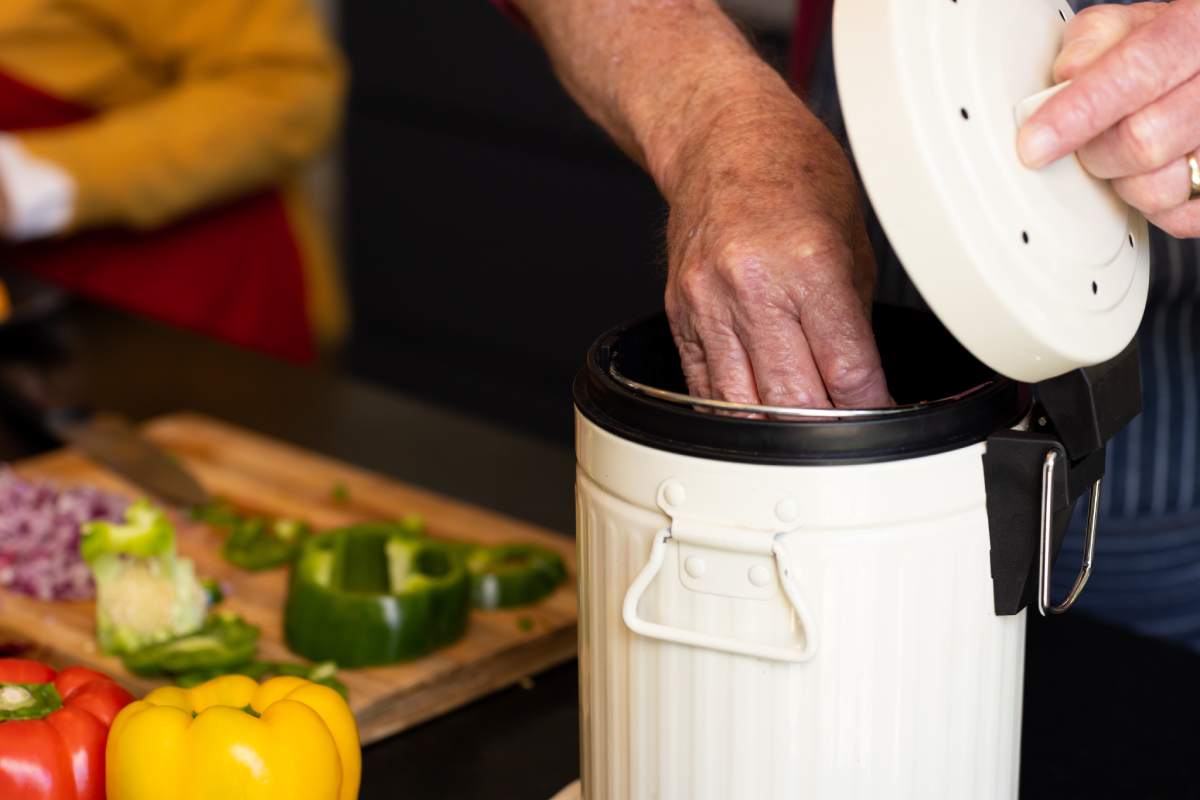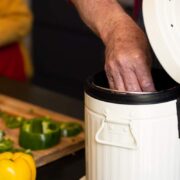Composting is a natural process that transforms food scraps, garden waste, and other organic materials into a nutrient-rich amendment for your soil. It’s a fantastic way to reduce waste, benefit the environment, and create a powerful tool for cultivating healthy plants.
But even the most enthusiastic composter can face a few questions: What happens to compost if it “ages” too much? What to do with an abundance of compost? Can you even sell your homemade black gold?
In this blog post we’re going to look into these composting dilemmas and empower you to manage your compost like a pro! We’ll answer all your burning questions, from the basics of electric composters, to clever ways to utilise excess compost.
Let’s get started!
What is Compost?
Compost is the end product of organic matter decomposing under controlled conditions (whether in a traditional garden compost bin, or an innovative electric composter).
Kitchen scraps, garden trimmings, and other organic materials are broken down through the action of microorganisms, fungi, and insects, transforming into a dark, crumbly, and nutrient-rich soil amendment.
Compost improves soil fertility, aeration, and drainage, thus leading to healthier plants and a thriving garden.
What is an Electric Composter?
An electric composter is a kitchen appliance that accelerates the natural composting process. It simulates conditions that helpful microbes thrive in, they break down food scraps into nutrient-rich compost in a much faster timeframe compared to traditional outdoor bins.
Important Note: Electric composters are not the same as food waste dehydrators! Food waste dehydrators simply remove moisture from food waste, resulting in dried food scraps that still need decomposing. Electric composters, on the other hand, create a complete composting environment, transforming food waste into valuable compost.

What Happens to Compost if it’s Left Too Long?
Don’t worry, your compost won’t “spoil” or become unusable if left for an extended period. However, there are a few things to consider:
- Nutrient Loss: Over time, some of the readily available nutrients in compost can break down further and become less readily absorbed by plants. This doesn’t mean the compost is useless, but it might be less potent.
- Maturity: “Aged” compost is a gardener’s friend. Aged compost is more stable and has a finer texture, making it ideal for directly planting in or top-dressing soil.
- Moisture Levels: A long-neglected compost pile might become overly dry. To rehydrate, simply add some water and turn the compost to ensure even moisture distribution. (Please note that water should not be added to an electric composter. Only to old compost that has been sitting around too long.)
What Can I Do with Excess Compost?
Have you made more compost than you can handle? Here are some brilliant ways to utilise your excess bounty:
- Share with friends and family: Spread the composting love! Gift your neighbours or fellow gardening enthusiasts with bags of your homemade compost and encourage them to join the sustainable movement.
- Community gardens: Many community gardens welcome donations of compost to enrich their shared growing spaces.
- Local farms or nurseries: Some local farms and nurseries might be willing to accept your excess compost, especially if you produce high-quality compost.
Can We Sell Our Compost?
The possibility of turning your compost into a side business is tempting! However, regulations regarding compost sales will likely vary depending on your location. Here’s what you need to consider:
- Small-scale vs. large-scale: Selling small batches of compost to friends, neighbours, or community gardens might not require formal permits.
- Compost regulations: If you plan on selling compost on a larger scale, you’ll likely need to comply with specific regulations in your area. These might involve licensing, testing the compost for quality and potential contaminants, and obtaining proper packaging.
Before embarking on a large-scale compost-selling adventure, research local regulations to ensure you comply with all legal requirements.
Can You Just Use Compost as Soil?
Compost is a fantastic soil amendment, but it shouldn’t be used as a complete substitute for soil. Here’s why:
- Nutrient Balance: While compost is rich in nutrients, it may not provide all the essential elements plants need in the correct proportions.
- Drainage: Compost can be quite dense. Mixing it with potting soil or other materials helps improve drainage and aeration for optimal plant growth.
The ideal approach is to mix compost with your existing soil (or potting mix) to create a nutrient-rich and well-balanced growing environment for your plants.

Maximising Your Compost’s Potential: Tips and Tricks
If you are a gardening enthusiast and are using a traditional compost pile, you will know that it takes a long time to get the balance correct. If you don’t have the experience and get the process wrong you will end up with a big pile of rotten food that will smell bad, attract flies and pests, and produce methane gas which is bad for the environment. The following tips can help:
- Balance the mix: Aim for a balanced ratio of brown materials (like dried leaves and twigs) and green materials (like kitchen scraps and grass clippings) for optimal decomposition.
- Maintain moisture levels: Keep your compost pile slightly damp, but not soggy.
- Turn regularly: Turning your compost pile aerates it and speeds up the decomposition process (hence why electric composters are so attractive)
- Consider a compost accelerator: Products containing beneficial microbes can help break down organic matter faster.
- Avoid problem materials: Some materials, like meat, dairy, and oil, can attract pests and create unpleasant doors. It’s best to avoid adding these to your compost pile.
If you do not have the patience to learn the process through trial and error or don’t have enough outdoor space for a traditional composter, we highly recommend getting your hands on an electric composter. Here’s why:
- Faster processing
- No secondary pollution
- Fully automated
- Low operating expense
- Small and discreet
- Highly efficient
- Eliminates pathogens
Conclusion: Turning Kitchen Scraps into Green Goodness
Composting is a simple yet powerful way to reduce waste, benefit the environment, and nourish your garden and plant life. Don’t be discouraged by a “mature” compost stocking up, explore the multiple uses for your excess compost, you can always donate it to friends and family or your green surroundings, or you could even consider the potential for turning your composting hobby into a small business.
With a little knowledge and effort, you can transform your kitchen scraps into a valuable resource for your plants and community. Happy composting!
If you’d like to know more about electric composting machines, or if you’d like to get your hands on a top-quality product, simply contact HASS Thailand today!


